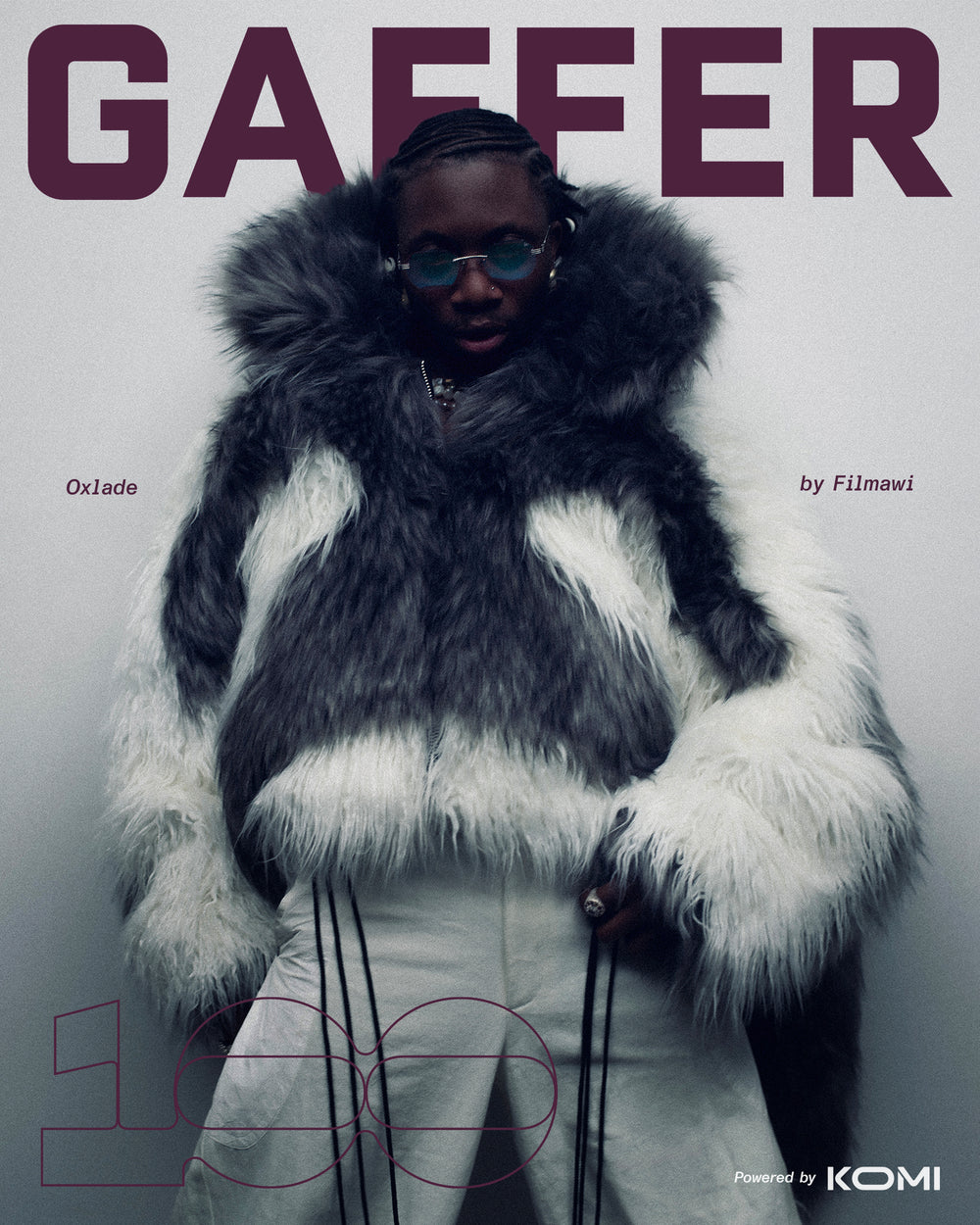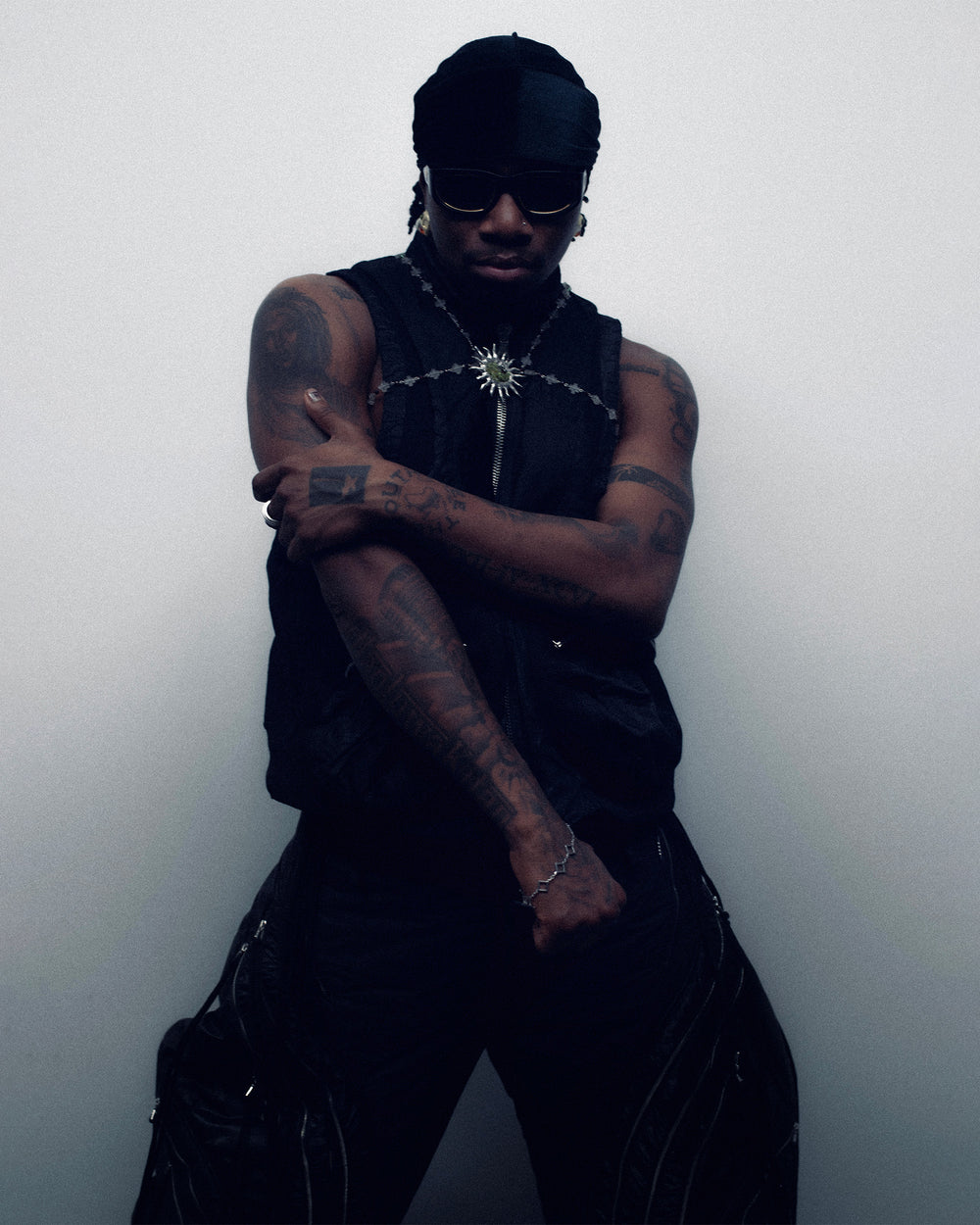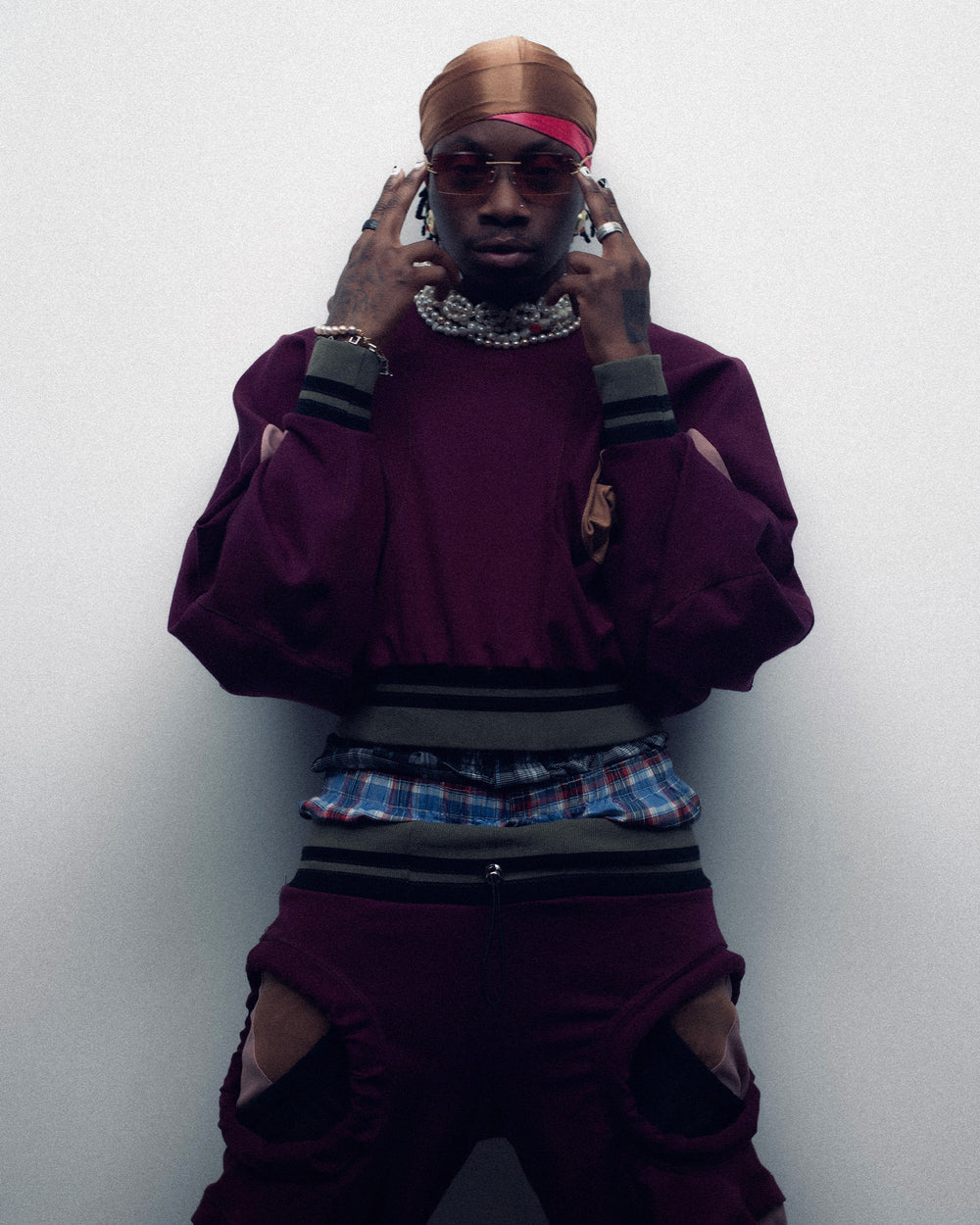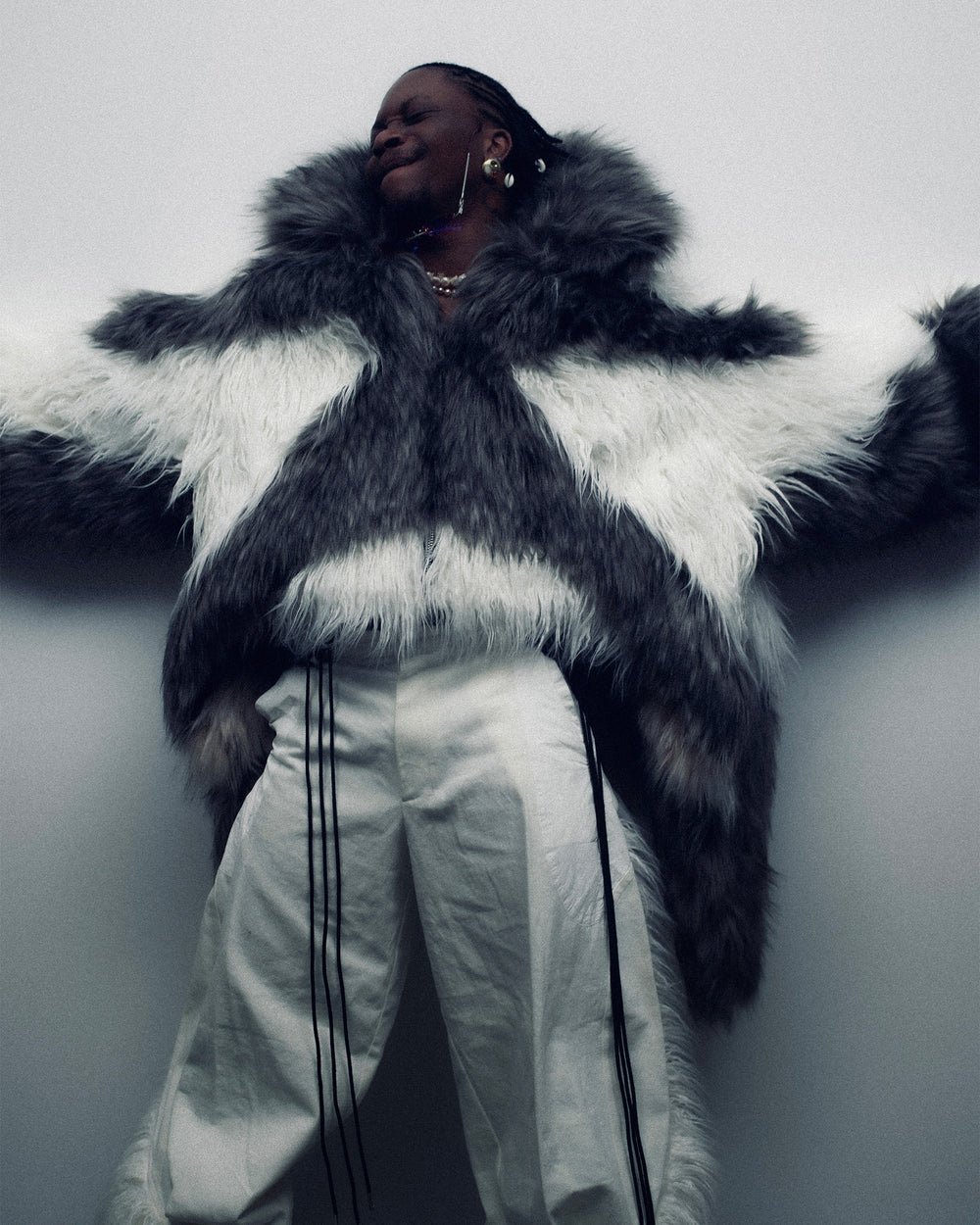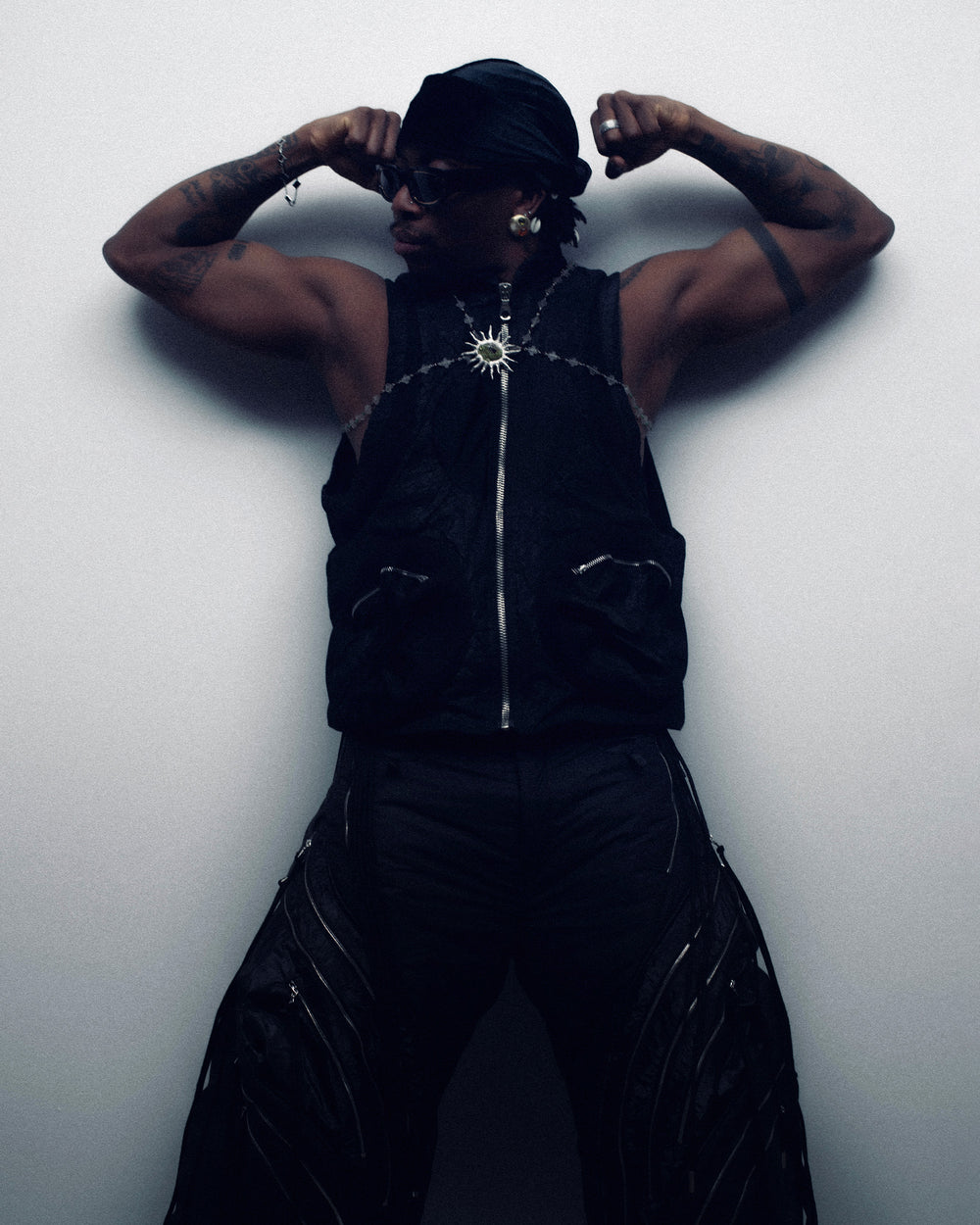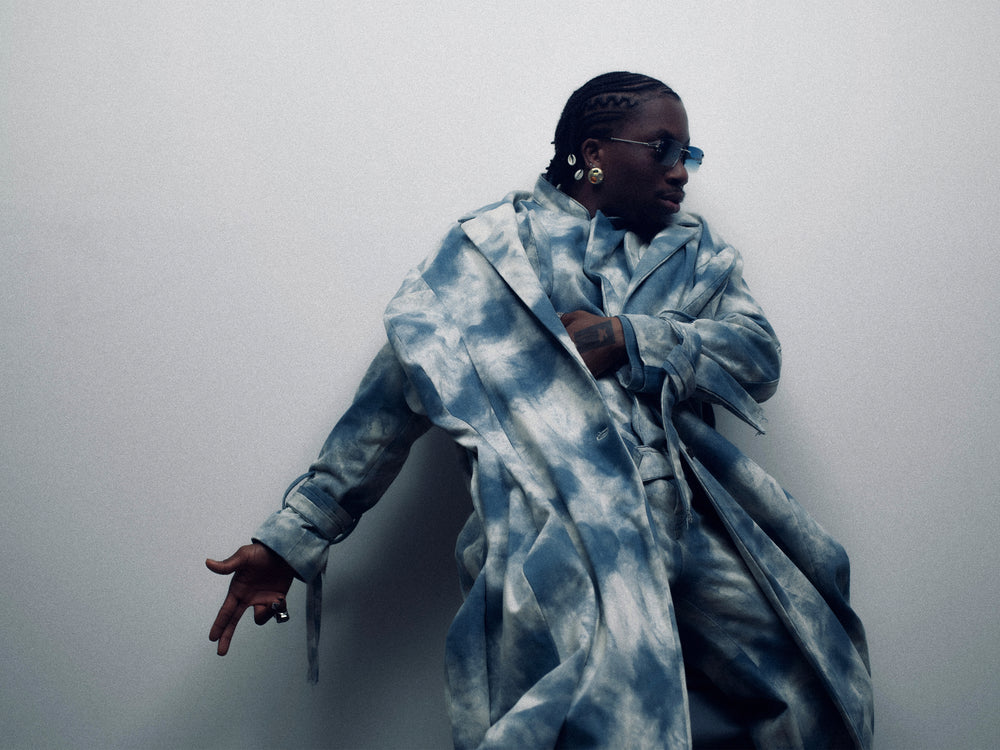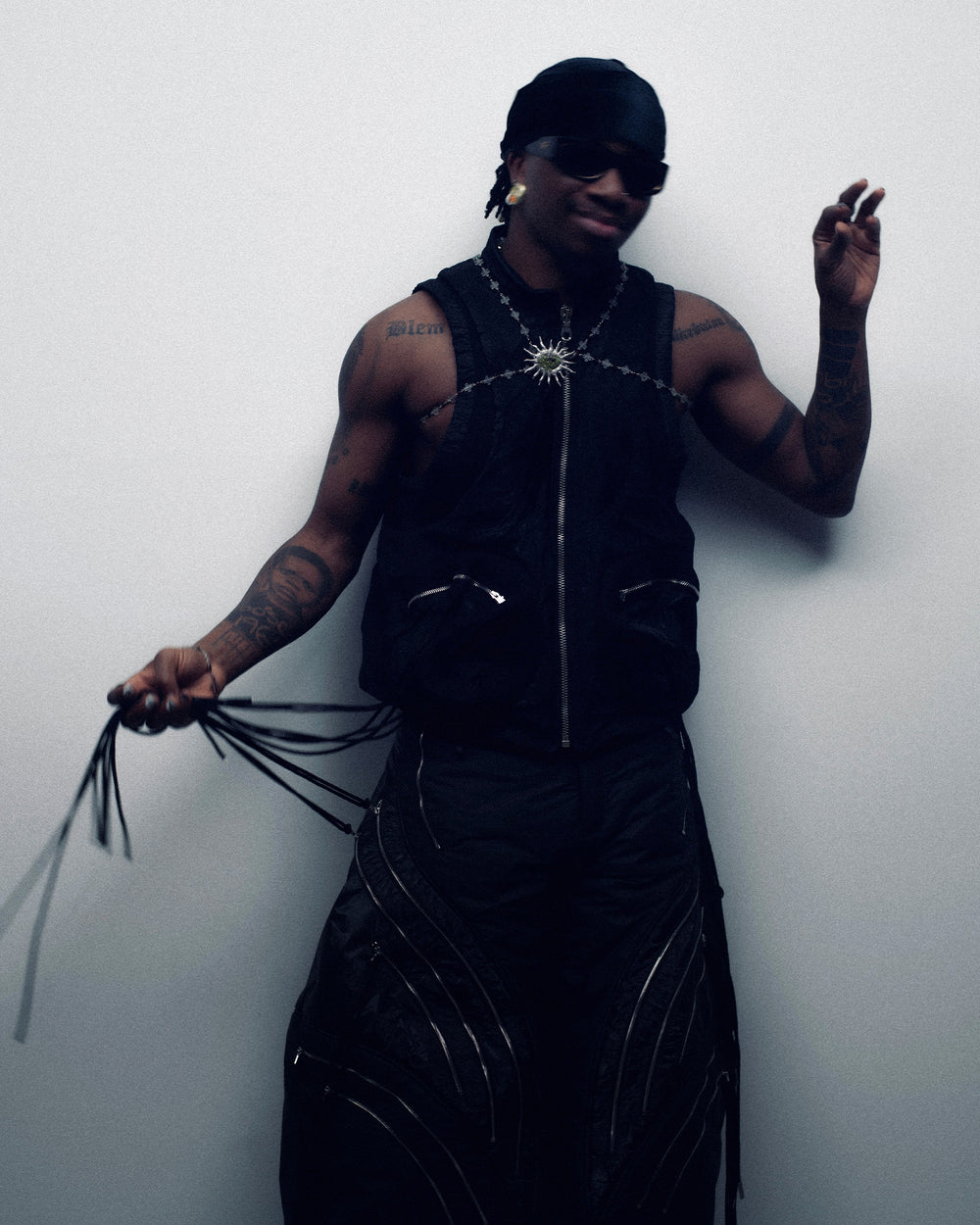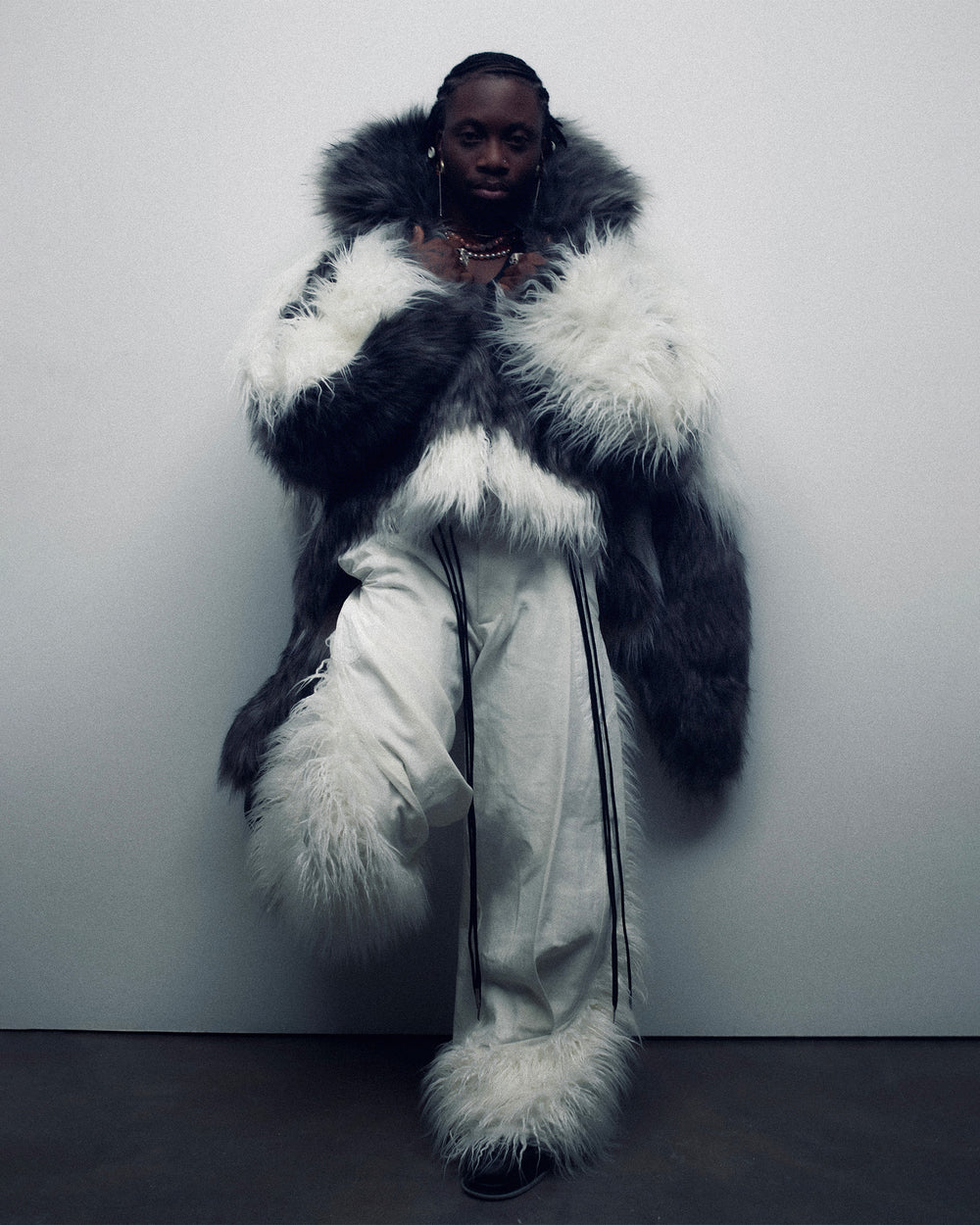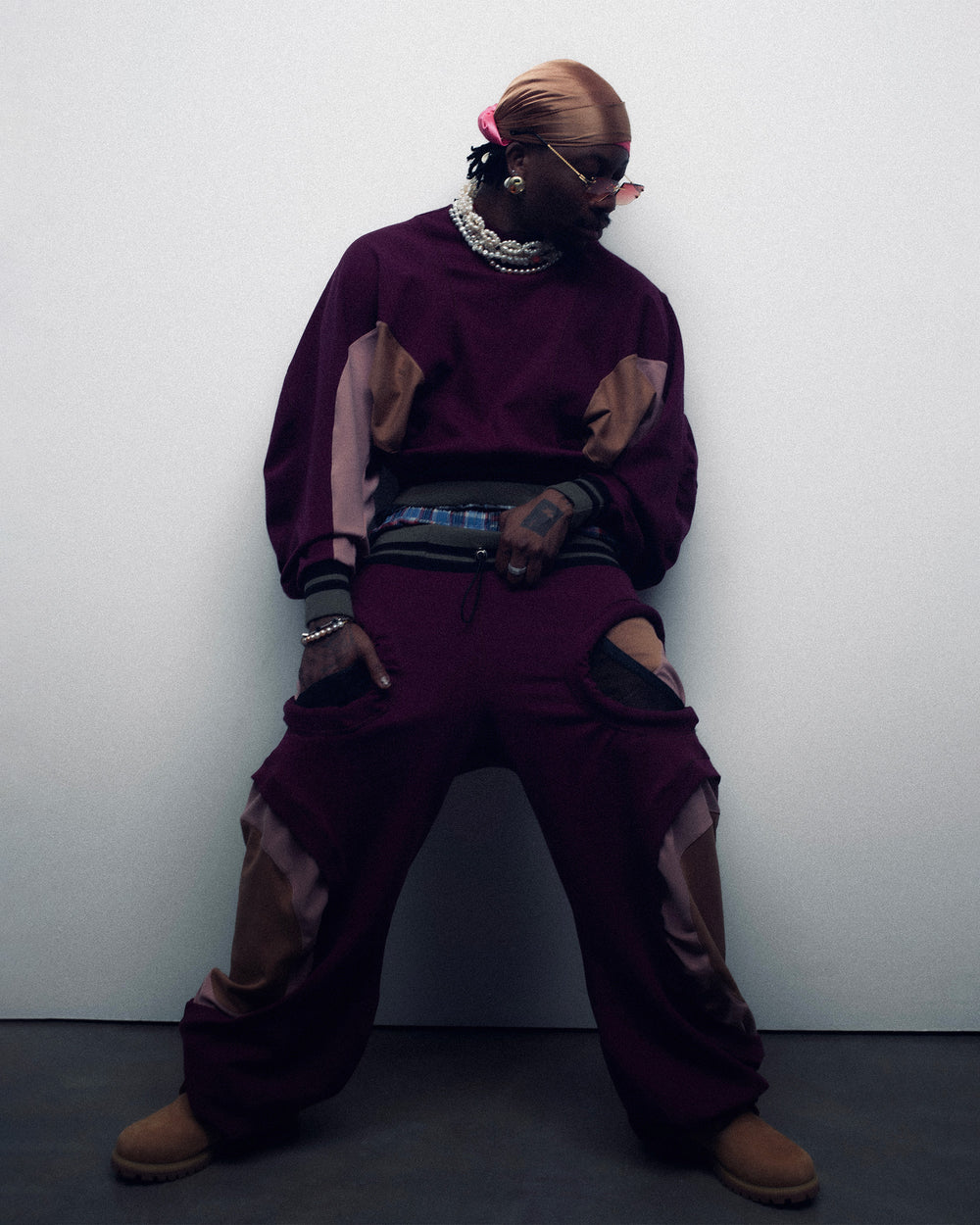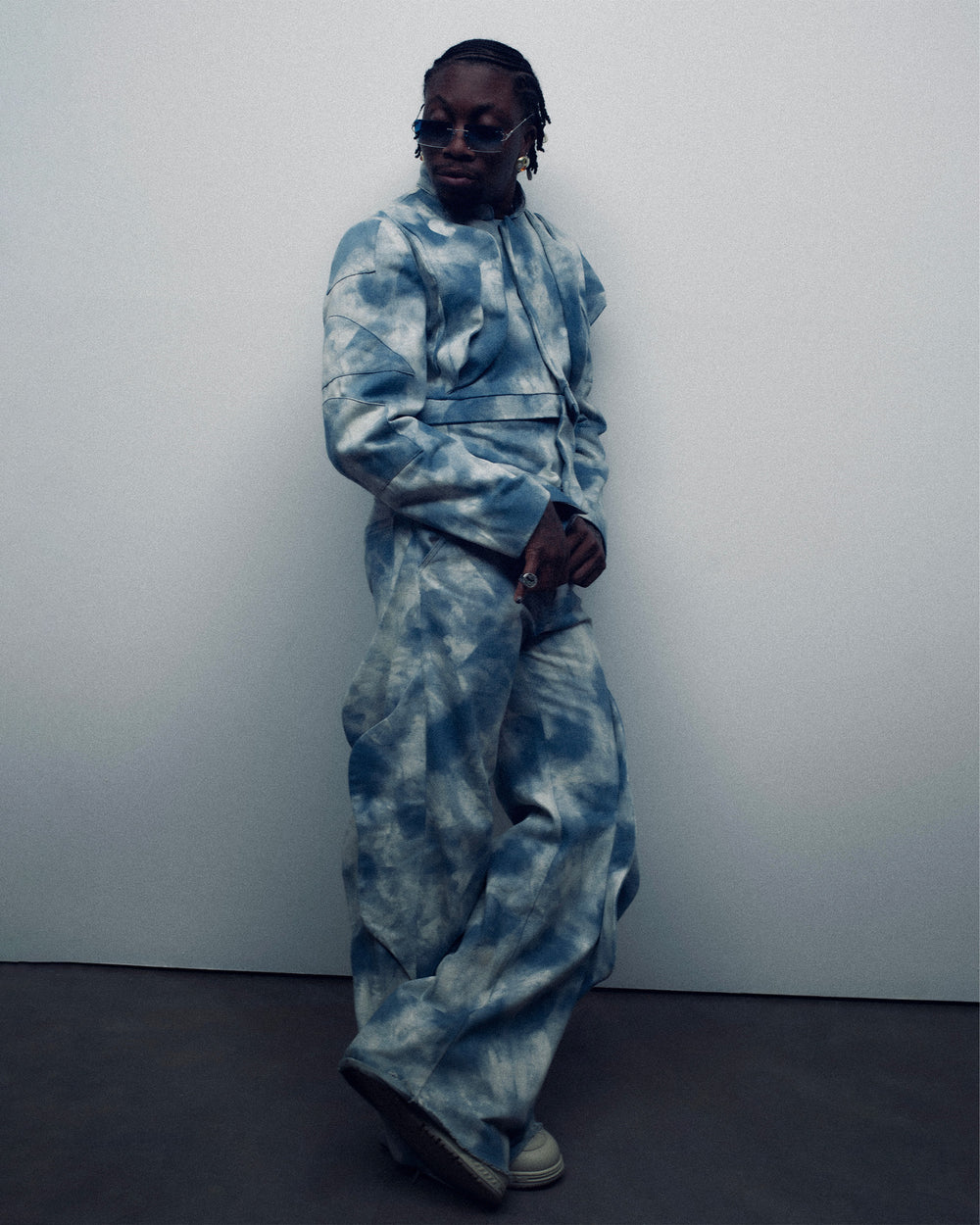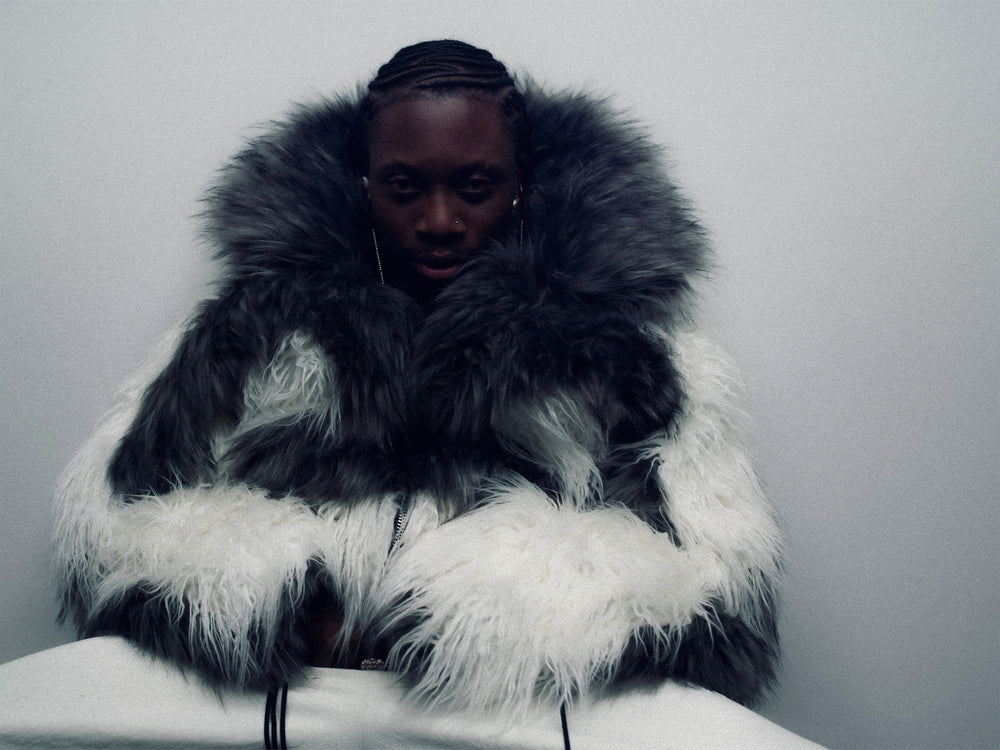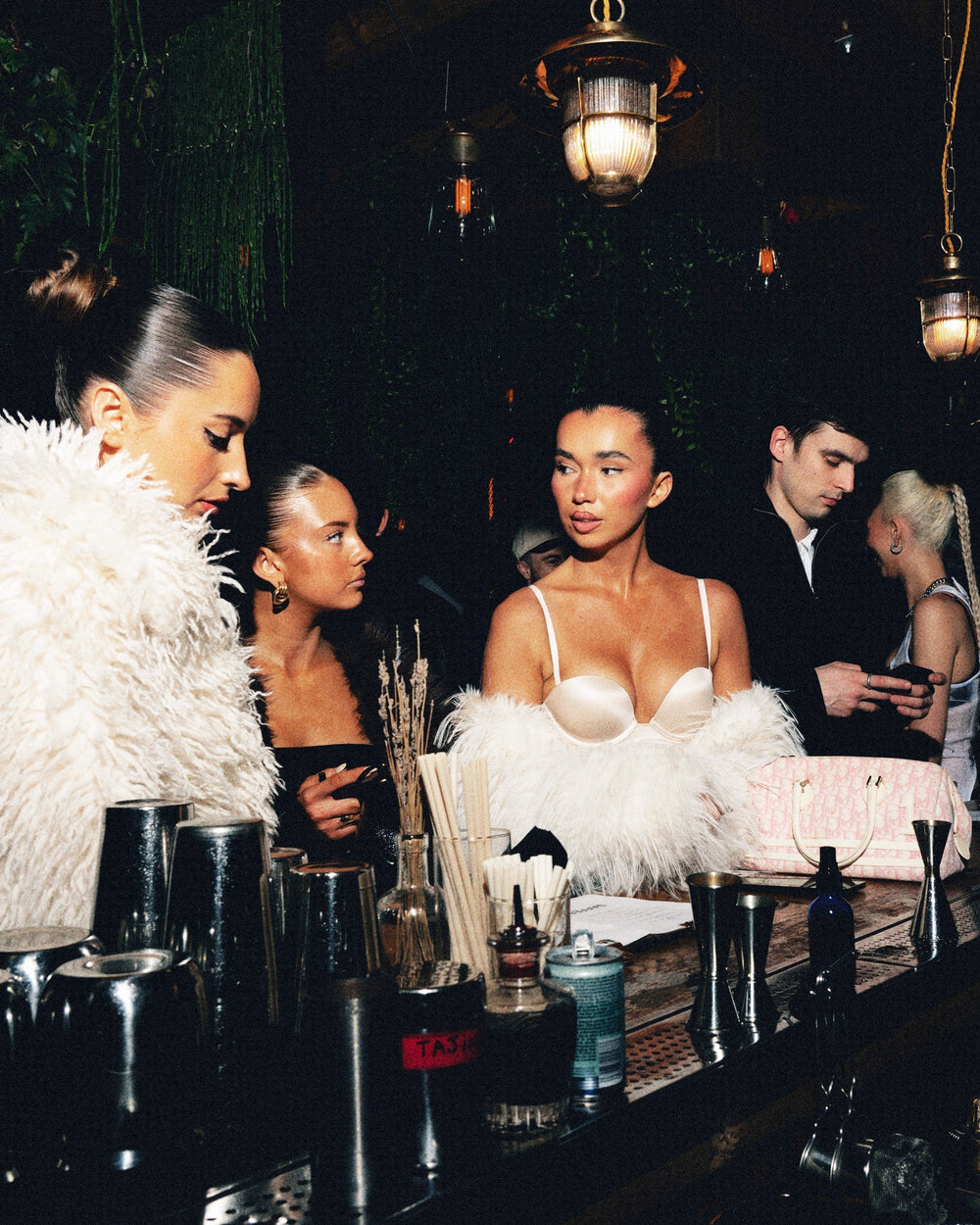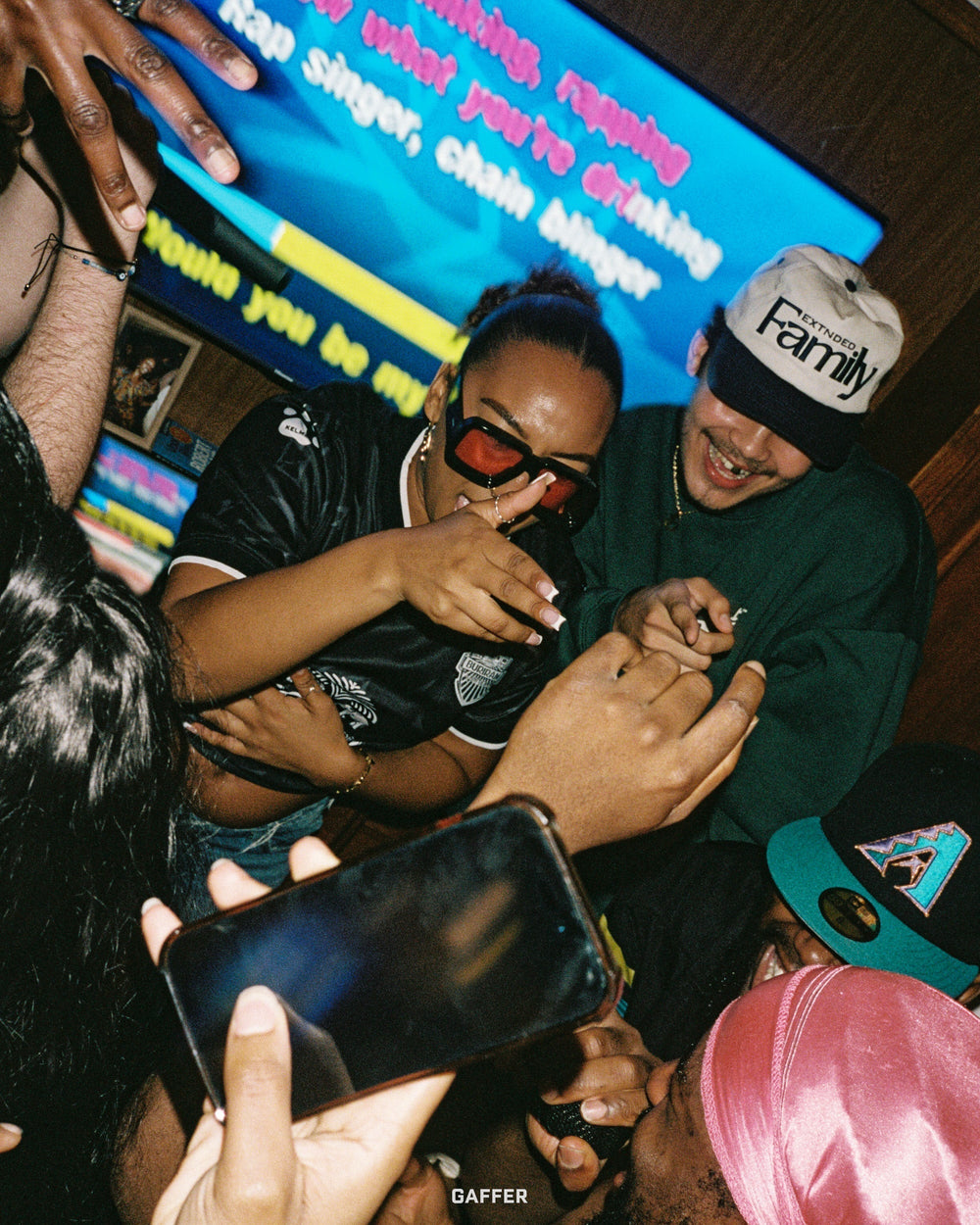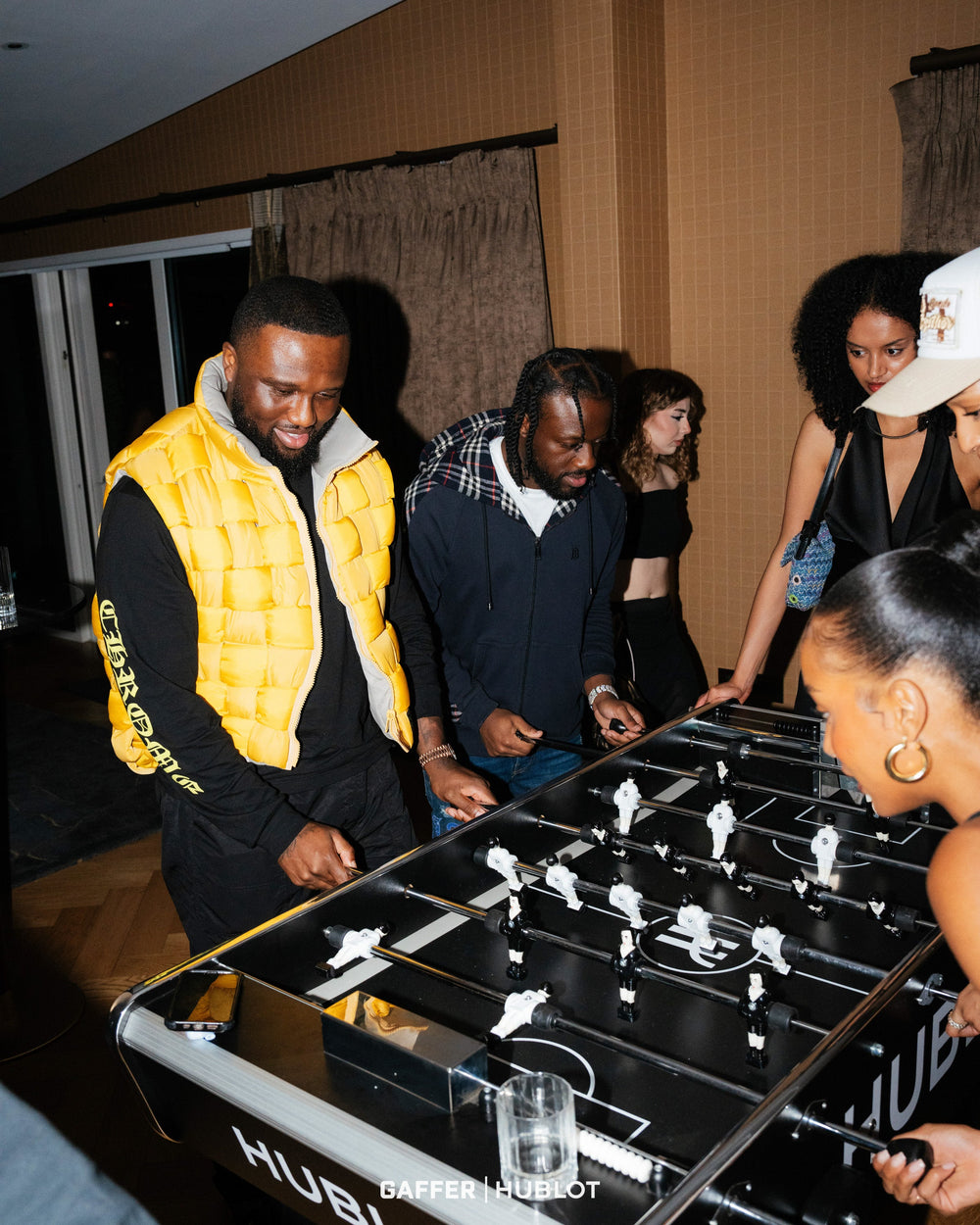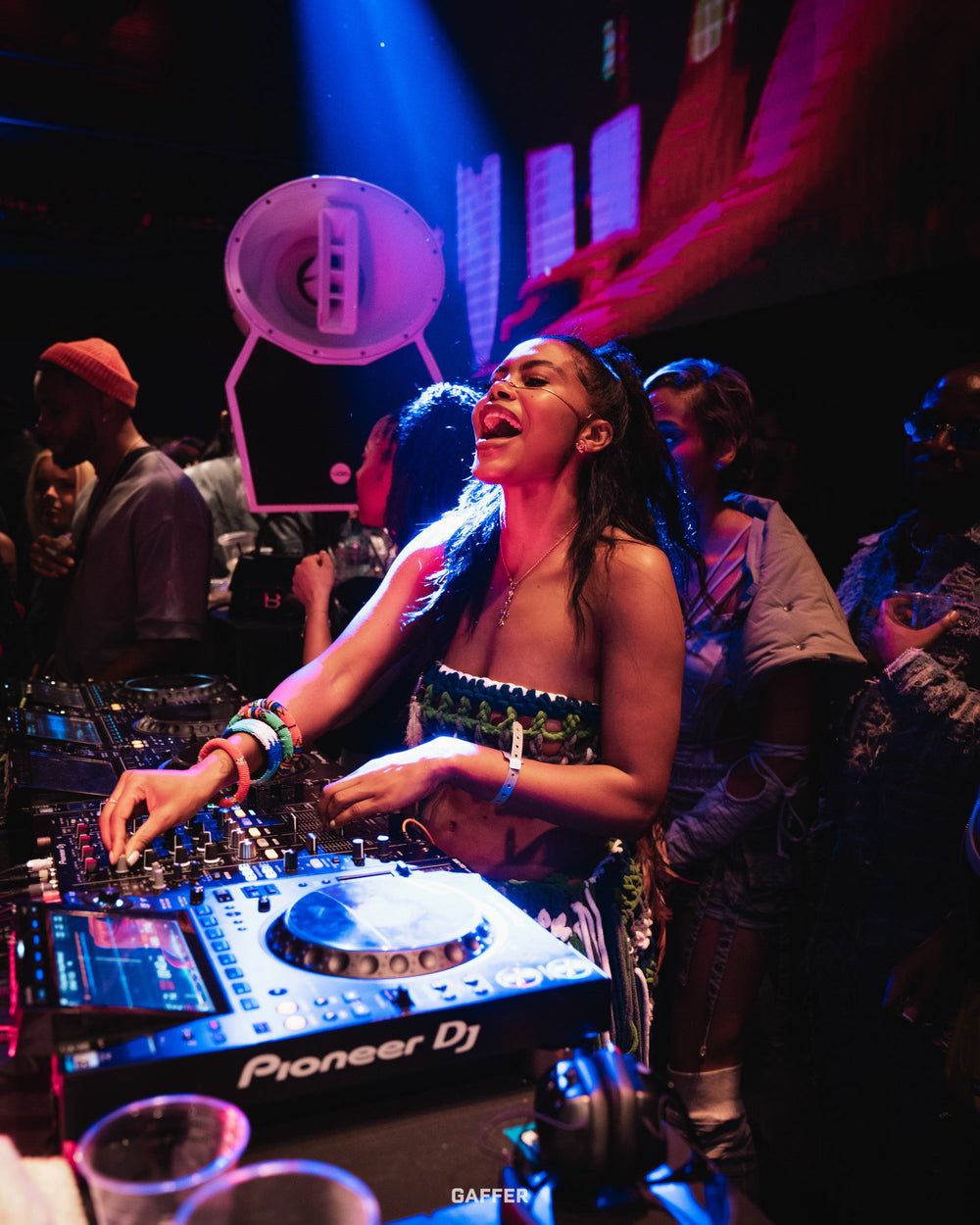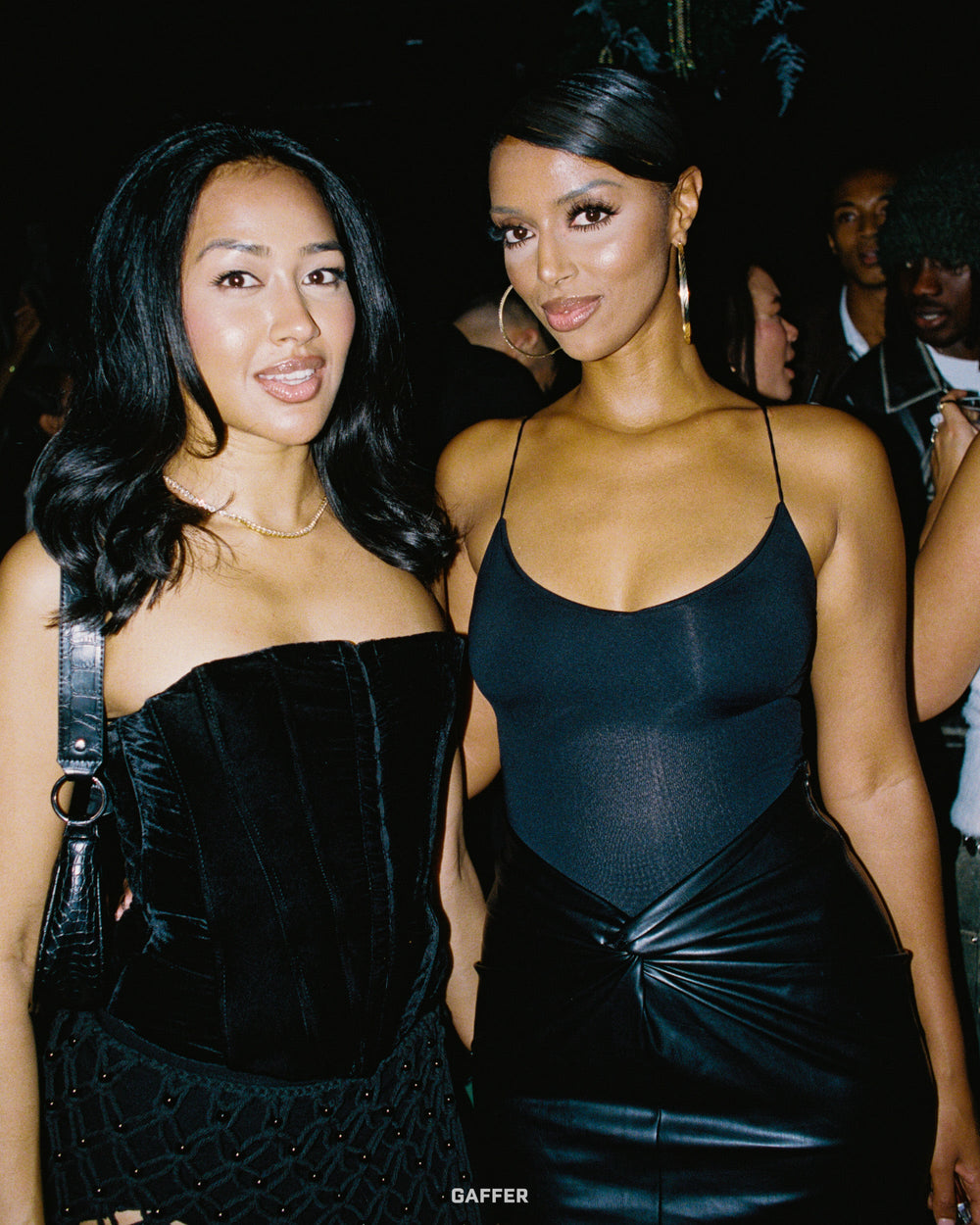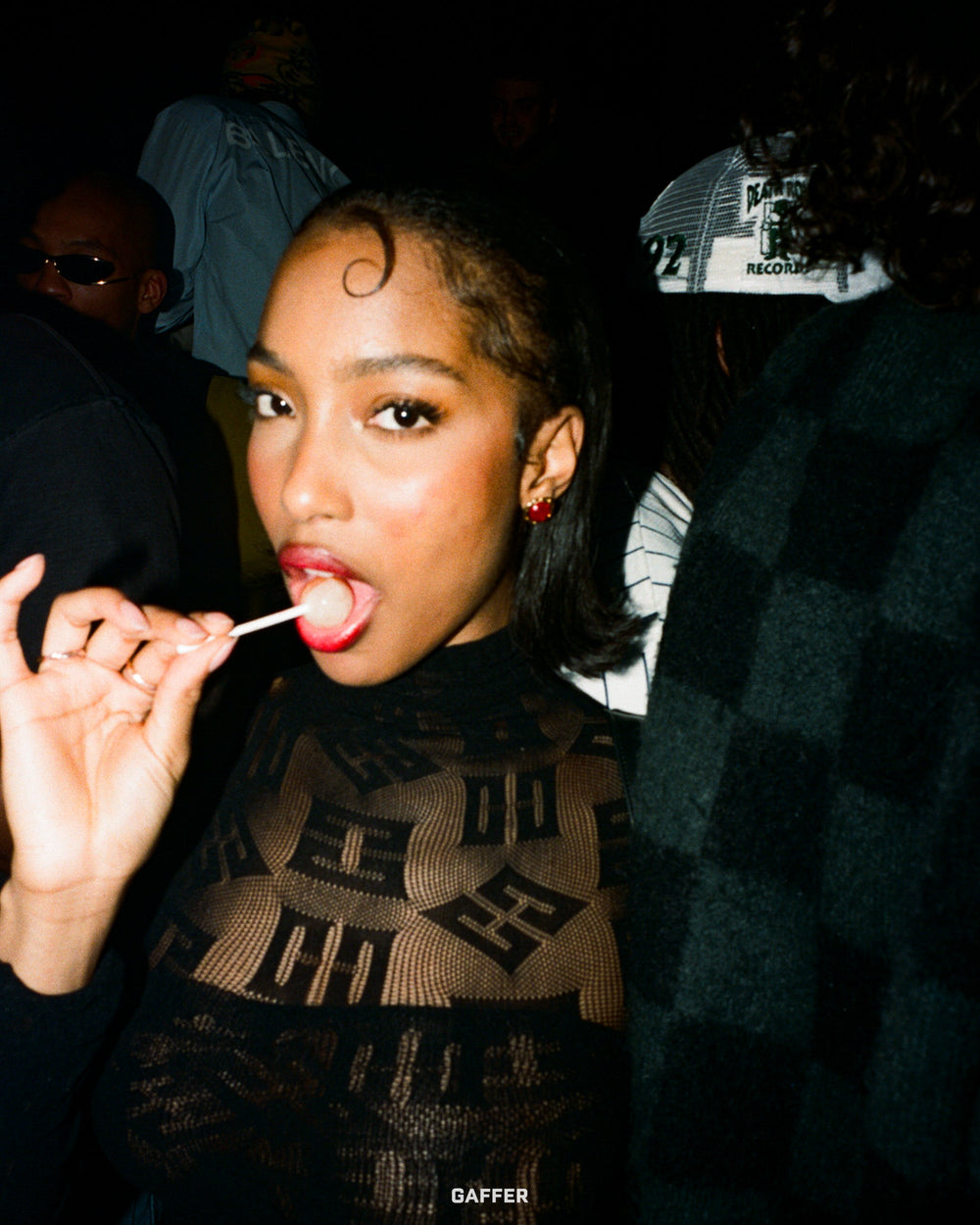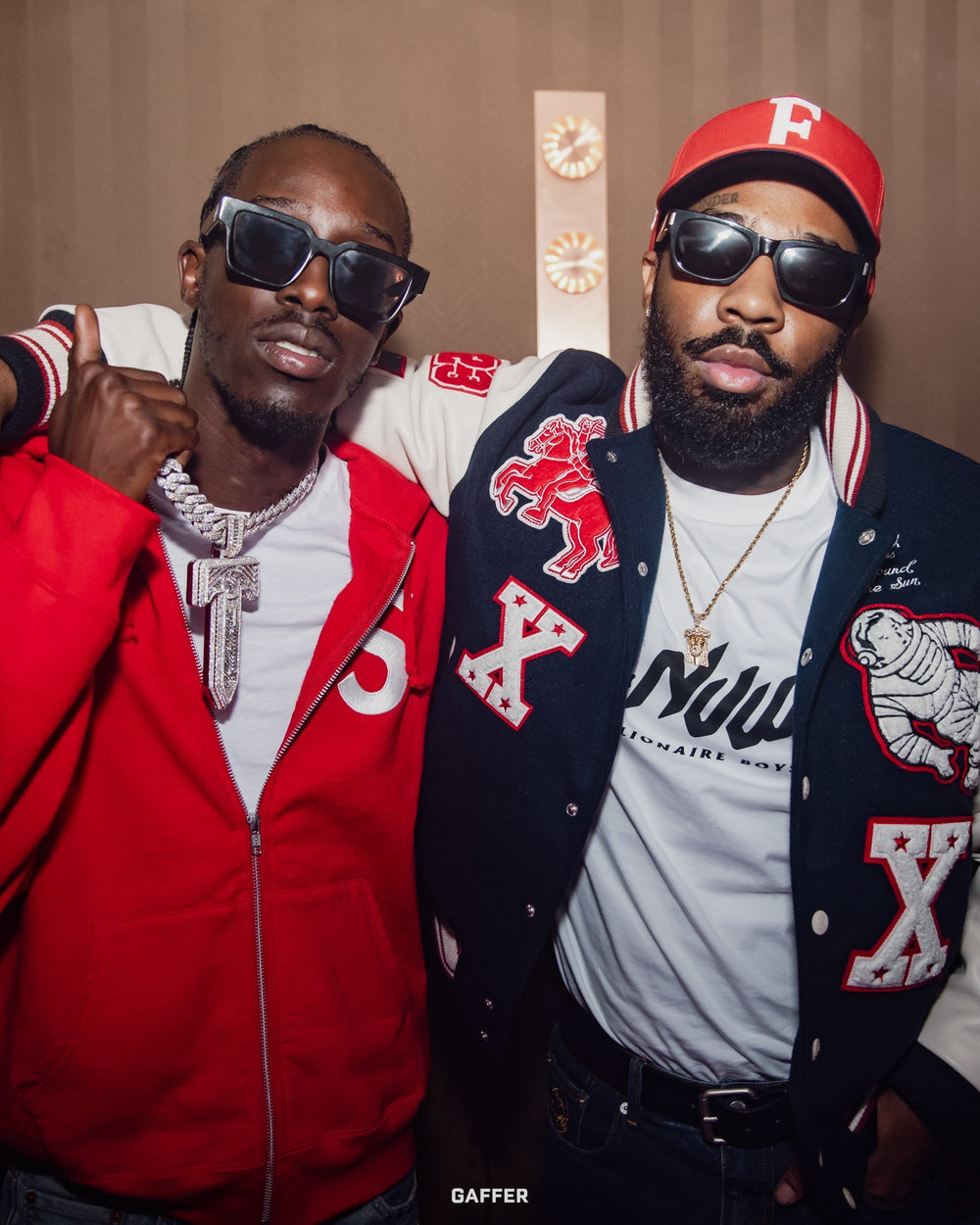OXLADE: unfiltered
Powered by

PHOTOGRAPHY: FILMAWI / STYLING: CARA HAYWARD / CREATIVE DIRECTION: CHARLOTTE MAYUMI PHIPPS / WORDS: GAFFER
Oxlade doesn’t walk into the room. He shifts its energy. There’s a force behind his presence that’s louder than words, but he still speaks like every syllable matters. “I’m asthmatic. I’m sorry, not sorry,” he says, flashing a grin. “My rage is scary. Don’t play.” It sounds like a warning. Or a prophecy.
This is an artist who feels everything. And when he does, it pours into the music. Not as fiction, but as raw, soul-drenched truth. “Every single song has its experience. Its reality,” he says. “I can’t even lie. I’m not selling emotions. I’m selling real life.”
“I sell water. You can’t live without that.”
From the start, Oxlade’s journey has been about defying expectation. He grew up in a deeply musical household. Gospel, church, culture. But he also grew up in Lagos, where you had to be tough to survive. In school, he rapped to be cool. In church, he sang to be heard. The blend became his foundation. “I let lyricism in the school. I let melodies in the church,” he says. “That’s what birthed and developed who I am.”
Still, the choice to fully embrace music didn’t come easy. His grandmother was scared. His family didn’t see the vision right away. But the calling was too strong. “Music for me is muscle memory,” he says. “It’s a way of life. It’s intertwined with my history, my development, everything.”
His name, too, comes from that history. “My grandpa lost his best friend the same day I was born,” he explains. “So he gave me the name in memory of his friend. That’s how Oxlade was born. It was real. It wasn’t made up. It wasn’t branding. It was just me.”
From his first viral moment in Lagos to a global breakthrough with “Ku Lo Sa,” Oxlade has never chased trends. He doesn’t move like that. He moves with intention, with honesty, and with a belief that his story, in all its layers, is enough. “From the onset, what made me different was the freshness and the truthfulness of my music,” he says. “I’ll never jump on any trend. I create my own trends.”
“I’m just getting paid to be myself. Through music.”
His voice, often described as one of the finest in his generation, isn’t just technically great. It’s emotionally charged. On “Intoxicated,” you can hear his heartbreak. On “Ku Lo Sa,” you feel his longing. When he sings, it’s not a performance. It’s confession. And the world keeps listening.
Oxlade has made music everywhere. Nairobi, Paris, Cape Town, Sydney, London. Each place gives him something. “The soil inspires my energy. My chi. Anywhere I am, if I don’t make music, I’m not meant to be there.” But one place holds special weight. Ghana. “Labadi just lifts me,” he says. “I sing to Jesus and he hears me.”
There’s a cinematic quality to how Ox sees the world. When he talks about football, it becomes poetry. “I’m a football historian,” he says. “The game loves me. The game healed me.” He talks about Messi winning the World Cup like it was a divine event. And when he references the Barcelona-PSG remontada, he calls it “the greatest moment in the history of humanity.”
He would have been a sprinter if he wasn’t making music. Or a dancer. Or an actor. Or all three. “Catch me soon in Hollywood,” he laughs. “I started off as a dancer. Afrobeat. Pantomime. Crump. Pop lock. Name it.” He’s also deeply shy. “I’m shy as f***,” he admits, deadpan. But on stage, it disappears. “You perform like it’s your last. Like you're in front of your guys. That’s how you give the show of your life.”
“Ego is low self-esteem. Vulnerability is the biggest strength you could ever have.”
It took six years of grind, soul-searching, and fights with doubt before Oxlade was ready to drop his debut album. That moment, that confirmation, was unlike anything else. “It felt like when they told my dad I was about to be born,” he says. “That feeling is timeless.”
As much as Oxlade is rooted in the spiritual, he’s also razor-sharp about the cultural weight he carries. His mission isn’t just to top charts. It’s to reframe the world’s perception of Africa. “Africa is the new cool. Being African is a flex. Being Black is a flex,” he says. “Afrobeats is beyond music. It’s the food. The banter. The fashion. The steeze. It’s identity. It’s movement.”
“My name is Oxlade. From Africa. This is the music I grew up listening to. And this is the music I’m giving back to the world.”
He doesn’t hesitate when asked what still inspires him. Everything. The streets. The soil. The struggle. The idea that even in hardship, beauty can be born. “Poverty inspires people,” he says. “Poverty triggered a lot of the talent in Nigeria. Regardless of how you see us, there are still good people in my country.”
Oxlade’s dream boy band? Michael Jackson, Bruno Mars, Andre 3000, Kendrick Lamar and Fela. No, you can’t join.
When it comes to his own place in that pantheon of greats, he’s not here to ask for permission. He knows what he’s building. He knows what he’s becoming. “Becoming who I aspire to be. Doing who I aspire to become. Targeting myself as one of the greatest to ever do it.”
He pauses. “Which I will eventually become.”
Then he smiles. And just like that, Oxlade is gone. One foot in the moment. The other already in the future.
